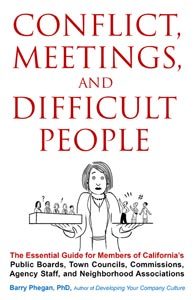 Stop Dumping, Start Humanizing
Stop Dumping, Start Humanizing
We must stop dumping the byproducts of unresolved social, economic, and political issues on the police. And the police must do a better job screening applicants and demilitarizing the police culture.
On June 7, 2020, following the murder of George Floyd at the hands of one of their police officers, a veto-proof majority of the Minneapolis City Council voted to “Defund the Police.” Council members believed it was simpler to start afresh than attempt to rehabilitate such a badly damaged department.
Obviously defunding the police does not mean removing the police function. Nobody imagines returning to earlier centuries where you either hired your own protection or suffered attacks from roaming brigands. While the Minneapolis city councilors do not know the exact form of their newly conceived Public Safety Department, they intend it to be free from the discrimination and unnecessary violence plaguing the existing Police Department.
Two Twisted Roots
But before cities jump to “Defund the Police” it’s worth examining two major causes of the present situation, one sociological and one psychological. Modifying a police function without addressing these root issues will just kick the can down the road, re-creating the same old problems but under a new name.
Social
Let’s look at the first, the sociological, the financial and political. As we shrank social benefits (taxes), transferring cash from the common good into the pockets of corporations and the ultra-wealthy, we gradually stripped society’s capacity to provide essential social functions and services. As parts of our society inevitably collapsed, we asked the police to mop up. That’s nuts.
Police can’t deal with the housing shortage, massive income inequalities, drug abuse, and mental issues leading to homelessness. Police can’t deal with the drug supply and abuse issues behind most burglary and much domestic and interpersonal violence. Police can’t deal with teenage angst, dysfunctional families, and the US gun culture leading to violence at schools. Police can’t deal with society’s historic and generational structural racism. Police shouldn’t be asked to choose one side or the other of the nationally long-standing, tribalized, and unresolved dilemma that’s our nonfunctional immigration policy. Yet we ask our local police to manage these situations — and many more — then criticize them when their limited toolkit isn’t up to the job.
Psychological
The second issue is what psychologists sometimes call, “The unholy alliance between the Id and the Superego”. Let me explain. Sometimes a person who has an extreme need for order and control finds a job, perhaps in the Army or in the police force, that gives them legal permission to exercise their extreme needs as dominance or violence over others.
Few people in the Army or the police force enjoy brutality, but some do — and far too much. These few get a rush from kneeling on someone’s neck until they die, shoving somebody onto the street and ignoring the blood coming out the ear, or cracking a skull with a baton. We should carefully screen out these impaired personalities so they can’t exercise their brutal impulses on citizens. The problem is magnified when the public institution has a code of silence that encourages the spread of violence into otherwise nonviolent members, i.e. violence becomes culturally normal.
Our Choice?
Police are trained and skilled at providing public safety. They are not trained to handle the myriad other demands and expectations we’ve thrown at them. Sadly, too many police departments, overloaded by these unrealistic demands, responded by escalating safety-and-protection into defensiveness-and-attack-back. We don’t need a militarized police force that many citizens experience as a feared enemy.
Will we choose to address these two issues, or continue violence, brutality, and discrimination?
I’ve Drifted Afar
In these last three blogs I’ve been swept up in the current frenzy of issues, COVID-19, Black Lives Matter, and abdication of national leadership. In my next blog, in July, I want to return to the original intent of 70andOlder, Reflections on These Intriguing Years. I’m hoping some new unimaginable catastrophe doesn’t swing in from off stage. Enough is enough.
Please let me know how you feel about this blog, your additional thoughts or comments. Is it interesting, depressing, boring, or ??? I would really like to hear from you. Thank you.
me, Barry Phegan




